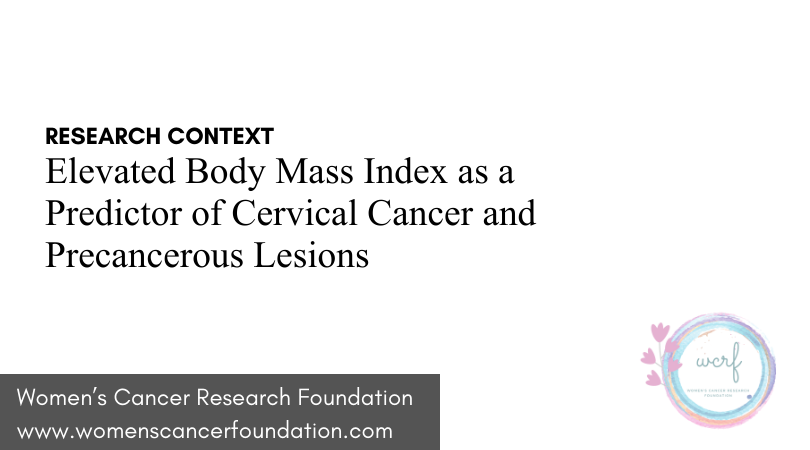Cancer Risks Associated with BRCA1 and BRCA2 Pathogenic Variants
- Women's Cancer Research Foundation

- Apr 7, 2022
- 1 min read
Updated: Jan 12, 2024

In a recent study, age-specific risk estimates of cancers, excluding breast and ovarian cancer, associated with pathogenic variants (a genetic condition that is known to raise the probability of developing a disease) in BRCA1 and BRCA2 were evaluated.
The researchers used data from 3,184 BRCA1 and 2,157 BRCA2 families to conduct the research.
BRCA1 pathologic variants were associated with risks of male breast cancer, pancreatic cancer, and stomach cancer.
BRCA2 pathogenic variants were associated with a risk for male breast, stomach cancer, pancreatic cancer, and prostate cancer.
The risk for stomach cancer was higher for females than males and the cumulative risks to adults, age 80 years, for a pathologic variant ranged from 0.4% for male breast cancer to approximately 2.5% for pancreatic cancer for BRCA1 carriers and from approximately 2.5% for pancreatic cancer to 27% for prostate cancer for BRCA2 carriers. In addition to female breast and ovarian cancers, BRCA1 and BRCA2 pathologic variants are associated with an increased risk for male breast, pancreatic, stomach, and prostate cancers, which may present significant clinical implications for cancer risk management in men and women with a BRCA1/2 pathologic variant.
About Women’s Cancer Research Foundation
The Women’s Cancer Research Foundation (WCRF) is one of the most active research organizations in the nation. We are dedicated to studying and evaluating novel treatments for women afflicted with breast, ovarian, endometrial, and cervical cancers. The WCRF persistently endeavors to make a difference in women’s lives by offering them hope, strength, and progress.
Laguna Beach, CA 92651
PH: (949) 642-5165
Follow Us On Social Media:








Comments